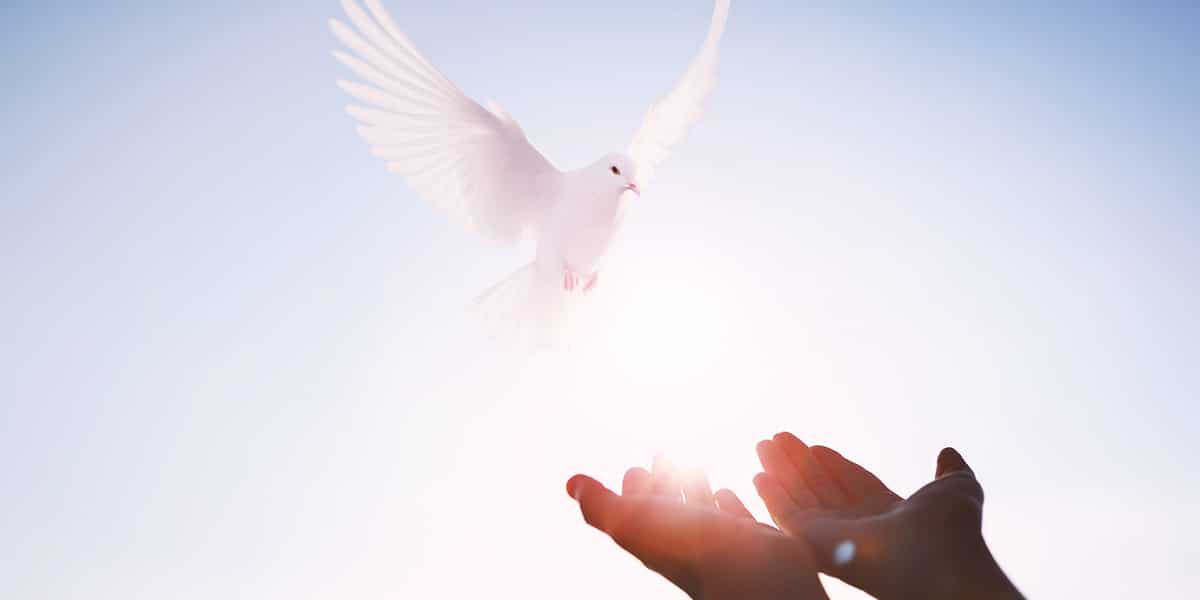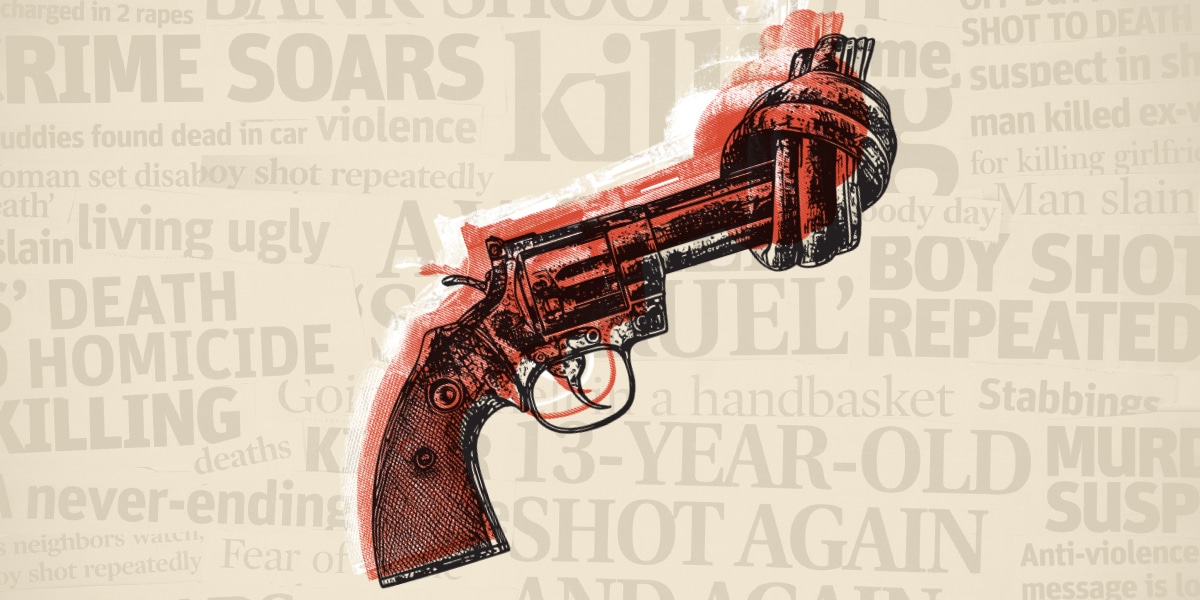ROME (CNS) — Children on the move, particularly as migrants or refugees, are enormously vulnerable, said one of the church’s leading experts on safeguarding.
“Though abuse happens in a multitude of places and contexts, children on the move are one of the most vulnerable categories of children who are denied their fundamental rights when exposed to all kinds of abusive and violent situations because of, among others, conflicts, war, poverty or natural disasters,” Jesuit Father Hans Zollner said at the opening session of an interfaith symposium Nov. 17.
“Moreover, when physical, psychological and/or sexual abuse of these children takes place within religious or faith-based institutions, this is often accompanied by spiritual abuse, hurting them at the deepest level of their being and affecting their relationship with God,” he said.
Father Zollner is director of the Institute of Anthropology: Interdisciplinary Studies on Human Dignity and Care at the Pontifical Gregorian University and a member of the Pontifical Commission for the Protection of Minors. He and dozens of experts and representatives of major religions and humanitarian organizations participated in a symposium in Rome dedicated to “Protecting Children’s Dignity: A Call to Action for Children on the Move” as part of celebrating the Nov. 18 World Day of Prayer and Action for Children.
Father Zollner said in his talk, “We must do more than intervene or more than create safe environments” since that “is not sufficient to address the full scope of the problem of abuse.”
Safeguarding “is more than simply protecting,” he said, and “we must recover our understanding of what it means to be human and the good that is our end.”
“It is imperative to work with others and share our best practices, experiences and insights” and to “practice what our faiths teach us about recognizing the dignity of every human person, and taking care of the most vulnerable,” he added.
Promoted by Arigatou International, the Nov. 17-18 symposium was co-hosted by Rome’s Pontifical Gregorian University in collaboration with more than 18 global organizations, including UNICEF, UNHCR and Religions for Peace, to address the huge rise in the global displacement of children and to respond with increased collaboration among faith-based groups.
Gillian Triggs, U.N. assistant secretary-general and assistant high commissioner for protection at the U.N. refugee agency, said that 41% of the 103 million people who are forcibly displaced today are children and young people.
The UNHCR recognizes the unique role faith-based communities and interfaith collaboration can play in protecting children’s dignity and their rights, she said in a recorded video address.
Faith communities often are among the “first-responders,” she said, and the international community needs to support their local initiatives.
Faith-based communities offer “solace, concrete support, the ability to be more resilient and, of course, to retain hope,” Triggs said. They promote values of respect, provide spiritual or psychosocial support, understand the local culture, tap into local networks, support family cohesion and promote the inclusion of children in education.
Just one example of their work, she said, was at the start of the war on Ukraine, faith-based networks set up tents almost immediately on the border between Ukraine and Moldova.
Refugees could find a safe place to rest, get warm, eat a hot meal, charge their phones and “get vital information on next steps and moral and spiritual support to continue their journey in safety,” Triggs said.
During the Nov. 17 morning discussion period with audience members, an unidentified priest who works with refugees in Lebanon appealed to all religious leaders to visit camps for refugees and displaced people regularly.
Spiritual leaders rarely visit the shelters, even those run or supported by a faith community, he said. The people living there are in great need of “spiritual fathers and mothers” who will meet, listen to and love them.
In a text read to the gathering, Cardinal Michael Czerny, prefect of the Vatican Dicastery for Promoting Integral Human Development, wrote, “The Catholic Church has long been strongly opposed to any form of detention of foreign minors due solely to their migratory status.”
Pope Francis has pushed for “alternative solutions to detention for legally underage migrants who enter a country without authorization: by offering temporary custody or foster homes for unaccompanied or separated minors and by setting up separate centers for the identification and processing of minors, adults and families,” the cardinal’s text said. Also, “different organizations are advocating for the right to family reunification and concrete assistance in this regard.”
Young migrants and refugees should be involved “in local life right away,” he wrote. Getting them involved “recognizes them as protagonists and promotes their dignity; this benefits their own growth and allows them to contribute to our societies.”
The symposium planned to release a “toolkit” online Nov. 18 to help people of faith protect children from violence and promote their “holistic well-being.” The resource, “Nurturing the Spiritual Development of Children in the Early Years,” was developed by the International Consortium on Nurturing Values and Spirituality in Early Childhood for the Prevention of Violence.
By Carol Glatz | Catholic News Service







News & Commentary
Displaced children can benefit from faith communities’ help, speakers say
ROME (CNS) — Children on the move, particularly as migrants or refugees, are enormously vulnerable, said one of the church’s leading experts on safeguarding.
“Though abuse happens in a multitude of places and contexts, children on the move are one of the most vulnerable categories of children who are denied their fundamental rights when exposed to all kinds of abusive and violent situations because of, among others, conflicts, war, poverty or natural disasters,” Jesuit Father Hans Zollner said at the opening session of an interfaith symposium Nov. 17.
“Moreover, when physical, psychological and/or sexual abuse of these children takes place within religious or faith-based institutions, this is often accompanied by spiritual abuse, hurting them at the deepest level of their being and affecting their relationship with God,” he said.
Father Zollner is director of the Institute of Anthropology: Interdisciplinary Studies on Human Dignity and Care at the Pontifical Gregorian University and a member of the Pontifical Commission for the Protection of Minors. He and dozens of experts and representatives of major religions and humanitarian organizations participated in a symposium in Rome dedicated to “Protecting Children’s Dignity: A Call to Action for Children on the Move” as part of celebrating the Nov. 18 World Day of Prayer and Action for Children.
Father Zollner said in his talk, “We must do more than intervene or more than create safe environments” since that “is not sufficient to address the full scope of the problem of abuse.”
Safeguarding “is more than simply protecting,” he said, and “we must recover our understanding of what it means to be human and the good that is our end.”
“It is imperative to work with others and share our best practices, experiences and insights” and to “practice what our faiths teach us about recognizing the dignity of every human person, and taking care of the most vulnerable,” he added.
Promoted by Arigatou International, the Nov. 17-18 symposium was co-hosted by Rome’s Pontifical Gregorian University in collaboration with more than 18 global organizations, including UNICEF, UNHCR and Religions for Peace, to address the huge rise in the global displacement of children and to respond with increased collaboration among faith-based groups.
Gillian Triggs, U.N. assistant secretary-general and assistant high commissioner for protection at the U.N. refugee agency, said that 41% of the 103 million people who are forcibly displaced today are children and young people.
The UNHCR recognizes the unique role faith-based communities and interfaith collaboration can play in protecting children’s dignity and their rights, she said in a recorded video address.
Faith communities often are among the “first-responders,” she said, and the international community needs to support their local initiatives.
Faith-based communities offer “solace, concrete support, the ability to be more resilient and, of course, to retain hope,” Triggs said. They promote values of respect, provide spiritual or psychosocial support, understand the local culture, tap into local networks, support family cohesion and promote the inclusion of children in education.
Just one example of their work, she said, was at the start of the war on Ukraine, faith-based networks set up tents almost immediately on the border between Ukraine and Moldova.
Refugees could find a safe place to rest, get warm, eat a hot meal, charge their phones and “get vital information on next steps and moral and spiritual support to continue their journey in safety,” Triggs said.
During the Nov. 17 morning discussion period with audience members, an unidentified priest who works with refugees in Lebanon appealed to all religious leaders to visit camps for refugees and displaced people regularly.
Spiritual leaders rarely visit the shelters, even those run or supported by a faith community, he said. The people living there are in great need of “spiritual fathers and mothers” who will meet, listen to and love them.
In a text read to the gathering, Cardinal Michael Czerny, prefect of the Vatican Dicastery for Promoting Integral Human Development, wrote, “The Catholic Church has long been strongly opposed to any form of detention of foreign minors due solely to their migratory status.”
Pope Francis has pushed for “alternative solutions to detention for legally underage migrants who enter a country without authorization: by offering temporary custody or foster homes for unaccompanied or separated minors and by setting up separate centers for the identification and processing of minors, adults and families,” the cardinal’s text said. Also, “different organizations are advocating for the right to family reunification and concrete assistance in this regard.”
Young migrants and refugees should be involved “in local life right away,” he wrote. Getting them involved “recognizes them as protagonists and promotes their dignity; this benefits their own growth and allows them to contribute to our societies.”
The symposium planned to release a “toolkit” online Nov. 18 to help people of faith protect children from violence and promote their “holistic well-being.” The resource, “Nurturing the Spiritual Development of Children in the Early Years,” was developed by the International Consortium on Nurturing Values and Spirituality in Early Childhood for the Prevention of Violence.
By Carol Glatz | Catholic News Service